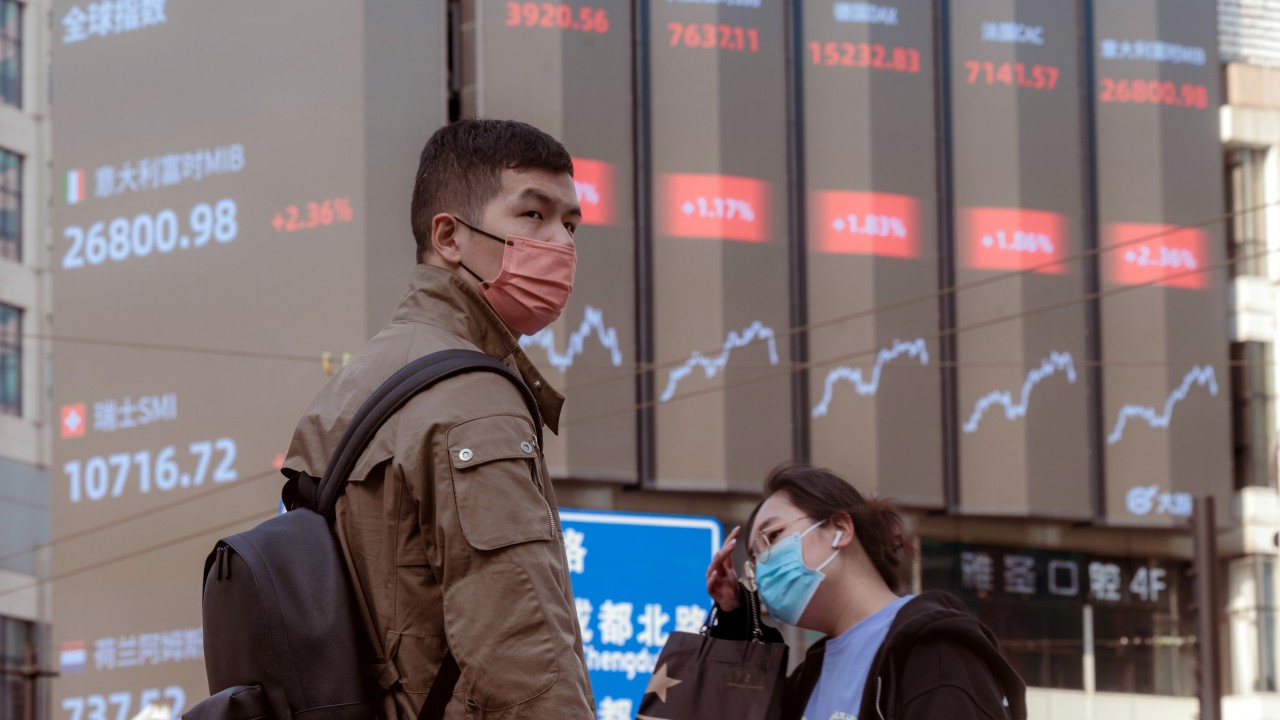
Elevated geopolitical risk and a change of investor sentiment would hold back foreign investors’ interests in Chinese stocks and bonds next year, according to the Institute of International Finance (IIF).
The US-based association for the global financial services industry estimated in a report on Wednesday that Chinese stocks and bonds would see an outflow of US$65 billion in 2024 from foreign investors.
The wide US dollar- yuan yield spread will likely persist due to the People’s Bank of China’s dovish stance
“We project continued net outflows of non-resident capital from China in 2024. After significant outflows in 2023, net outflows of non-resident portfolio debt are projected to remain substantial at US$45 billion in 2024,” the IIF said in its capital flows report.
China’s central bank has kept interest rates low in a bid to support credit demand, which has been subdued this year.
Meanwhile, the large interest rate differential between China and the US has exacerbated capital outflows from yuan-denominated assets since the US Federal Reserve began raising its benchmark rate in March last year.
Series: what to expect from China’s economy in 2024
Series: what to expect from China’s economy in 2024
The yuan has lost as much as 6.2 per cent against the US dollar since the start of the year, weakening past 7.3 in September and again in October.
Pressure on the yuan has since eased, and it has hovered around 7.13 to 7.17 against the US dollar in recent weeks.
In November, foreign investors pulled US$3.7 billion from Chinese equities and bonds, despite a recovery of funds flowing into emerging markets, preliminary data from IIF showed on Wednesday.
Chinese stocks had a marginal inflow of US$600 million, the IIF data showed.
“We estimate that emerging market securities attracted around US$43.4 billion in November 2023,” the IIF said.
“This positive outcome breaks a three-month outflow episode across the emerging market complex.
“The overall performance is mainly explained by important inflows to emerging markets, excluding China.”
The IIF said returns on emerging market currencies would stay closely linked to the US economy next year.
From carbon cuts to common prosperity, China’s Politburo course corrects policy
From carbon cuts to common prosperity, China’s Politburo course corrects policy
For Chinese assets, Beijing’s deteriorating relations with the West remains a main downside risk, as concerns over de-risking, reshoring and technology embargoes would persist next year, which would weigh on capital flows, the IIF said.
“Flows to non-China emerging markets should benefit from the fall in global inflation, as advanced economy central banks turn less hawkish,” the IIF said.
“Flows to China, however, will continue to be held back by elevated geopolitical risk and a change of investor sentiment.”

